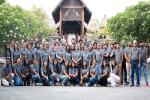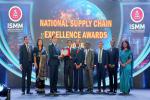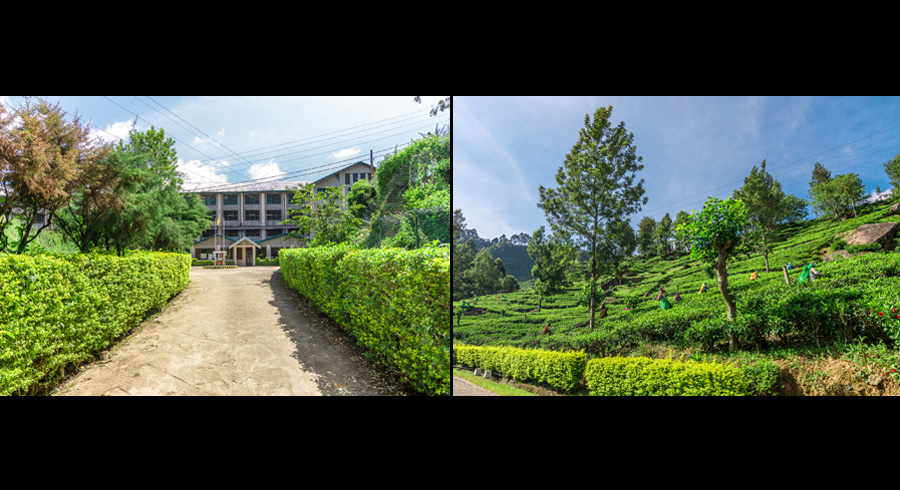Spanning 790 hectares in the Nuwara Eliya District, with nearly 494 hectares under tea cultivation, it remains one of the largest and most historic tea estates in the country.
The estate is currently managed by Aitken Spence Plantations and owned by Elpitiya Plantations PLC, two of the most respected names in Sri Lanka’s plantation sector.
Dunsinane’s location in the culturally rich Pundaluoya Valley, within the Kotmale Division, with surrounding forest reserves and traditional villages tying its operations to the roots of upcountry heritage adds historical depth to its identity.
Over its long history, Dunsinane has consistently shaped the standards of high-grown CTC (Crush, Tear, Curl) teas.
A pivotal milestone came in 1989, when the estate transitioned from orthodox production to CTC manufacture.
Since then, it has become a benchmark for premium high-grown CTC teas, earning and maintaining the No. 1 ranking in its category from 2016 to date.
Its 1920 factory building, located at 4,600 feet above sea level, remains central to its operations.
Today, the estate processes 27,000 kg of green leaf daily and produces approximately 1.3 million kg of made tea annually, upholding exceptional consistency and quality under ISO food safety standards.
Empowering Communities and Advancing Sustainability
Beyond tea, Dunsinane is deeply intertwined with the well-being of its surrounding communities.
It provides direct employment to a large number of estate workers across its five divisions, Upper, Middle, Factory, North and Lower and supports many more indirectly through estate-linked services and trade.
The estate actively supports the welfare of plantation families through a wide range of community development initiatives.
Educational programs provide schoolbooks, uniforms and even mobile devices to support online learning.
Health-focused efforts include medical camps, blood donation drives and nutrition programs aimed at improving quality of life.
Women empowerment is a central focus, with skills training and development programs encouraging economic participation and leadership.
Further, children’s welfare is prioritized, with regular engagement with the National Child Protection Authority (NCPA).
A standout initiative is the Community Kitchen, designed to tackle nutrition challenges among estate families.
Operating on a rotational basis across divisions, it serves freshly prepared meals at subsidized rates, managed by local volunteers and estate staff. It ensures food security and strengthens community ties.
In terms of infrastructure, Dunsinane invests in the maintenance of purified water access and road improvements.
The estate’s Worker Housing Co-operative Society was recognized with the Best EWHCS Award in the Nuwara Eliya Region and earned star-rated status for excellence in social development two years in a row, including 2024.
The estate’s commitment to sustainability is also evident in its certifications and daily practices.
It received ISO 22000:2005 food safety certification in 2009 and Rainforest Alliance certification in 2014.
Since then, Dunsinane has integrated eco-conscious systems, including energy-efficient factory operations, mechanized fieldwork to improve efficiency and environmentally friendly soil and water management practices.
Efforts like foliar nutrient application, improved pruning and machine plucking also contribute to better field productivity and sustainability.
Greener Horizons with Hydro Power
Dunsinane Estate is also playing a leading role in Sri Lanka’s renewable energy future through Elpitiya Plantations’ ambitious green energy initiatives.
In 2006, Elpitiya acquired a 5% stake in the Dunsinane Power Project, a 3 MW mini hydro facility.
This marked the beginning of the company’s journey into clean energy.
Building on this momentum, Elpitiya commissioned the Sheen Mini Hydro Power Plant in 2008, adding 560 kW of renewable energy.
In 2013, the Dunsinane Cottage Mini Hydro Plant brought an additional 900 kW online.
By the end of 2013, Elpitiya had reached a total generation capacity of 1.6 MW, a significant contribution to Sri Lanka’s decentralized energy grid.
These efforts reflect a broader vision for integrating sustainability into every facet of the business.
Dunsinane’s legacy is now deeply tied to a forward-thinking model of plantation management that respects people, the environment and future generations.
From producing world-class teas to empowering communities and investing in renewable energy, Dunsinane Estate stands as a model of how tradition and innovation can go hand-in-hand.
Its journey continues to inspire the future of ethical and sustainable agriculture in Sri Lanka.






















